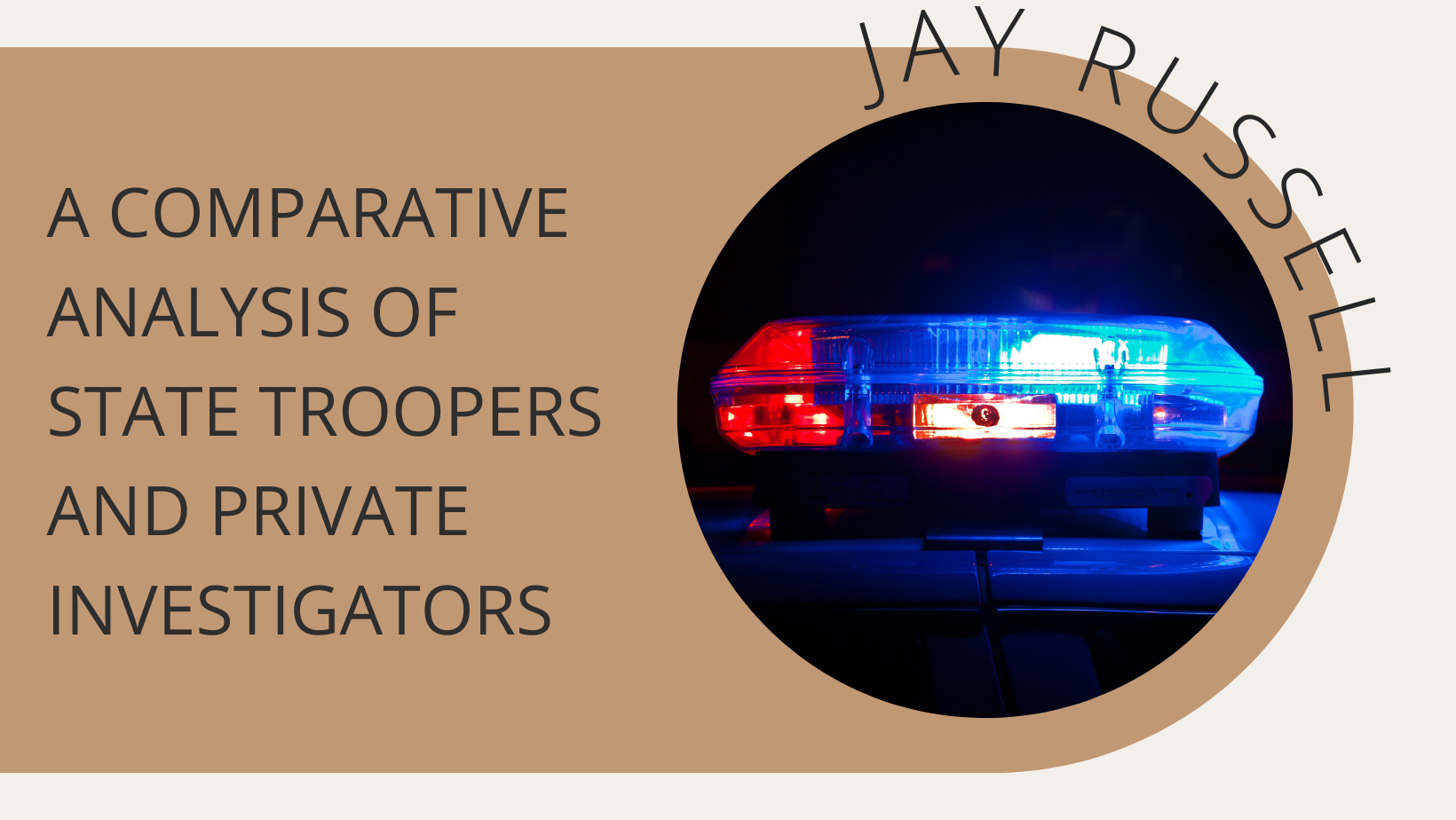State troopers and private investigators both hold critical roles in maintaining safety, upholding the law, and solving complex issues within law enforcement. Despite their shared commitment to justice, these professions differ significantly in their duties, training, and spheres of influence. In this article, we’ll compare state troopers and private investigators, shedding light on their distinct roles and contributions.
Roles and Responsibilities:
- State Troopers: State troopers are uniformed law enforcement officers tasked with enforcing traffic laws, responding to emergencies, and maintaining public safety on highways and interstates. They handle accidents, assist motorists, and may engage in specialized units such as K-9 or SWAT teams.
- Private Investigators: Private investigators, on the other hand, operate in the private sector and offer services to individuals, businesses, and legal entities. They conduct investigations for various purposes, including background checks, surveillance, locating missing persons, and corporate investigations.
Training and Qualifications:
- State Troopers: Becoming a state trooper typically involves a rigorous selection process, followed by comprehensive training at a police academy. This training encompasses firearms proficiency, physical fitness, legal procedures, and conflict resolution. Troopers must adhere to strict law enforcement standards and regulations.
- Private Investigators: Private investigators come from diverse backgrounds and often possess various skills before entering the field. Some may have law enforcement or military experience, while others transition from areas such as law, accounting, or cybersecurity. While formal education isn’t always required, relevant training and licensing vary by jurisdiction.
Scope of Jurisdiction:
- State Troopers: State troopers have jurisdiction within a specific state, usually covering highways, interstates, and sometimes rural areas. Their primary focus is enforcing traffic laws and responding to incidents within their state’s boundaries.
- Private Investigators: Private investigators operate within the private sector and aren’t bound by jurisdictional restrictions like state troopers. They can work across different states or even internationally, depending on the nature of the case and client needs.
Public vs. Private Clients:
- State Troopers: State troopers serve the public and work under government agencies. They respond to emergencies, enforce laws, and ensure public safety, often patrolling highly visible areas.
- Private Investigators: Private investigators serve private clients, including individuals, corporations, law firms, insurance companies, and more. Their work is often discreet and tailored to their client’s needs, from personal matters to legal cases.
While state troopers and private investigators contribute to law enforcement and justice, their roles, training, and areas of influence are distinct. State troopers dedicate themselves to maintaining public safety on the roads and responding to emergencies, whereas private investigators specialize in diverse investigative services for private clients. These professions reflect the broad spectrum of skills and expertise required to address the multifaceted challenges within law enforcement and investigations.

